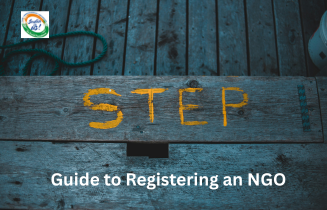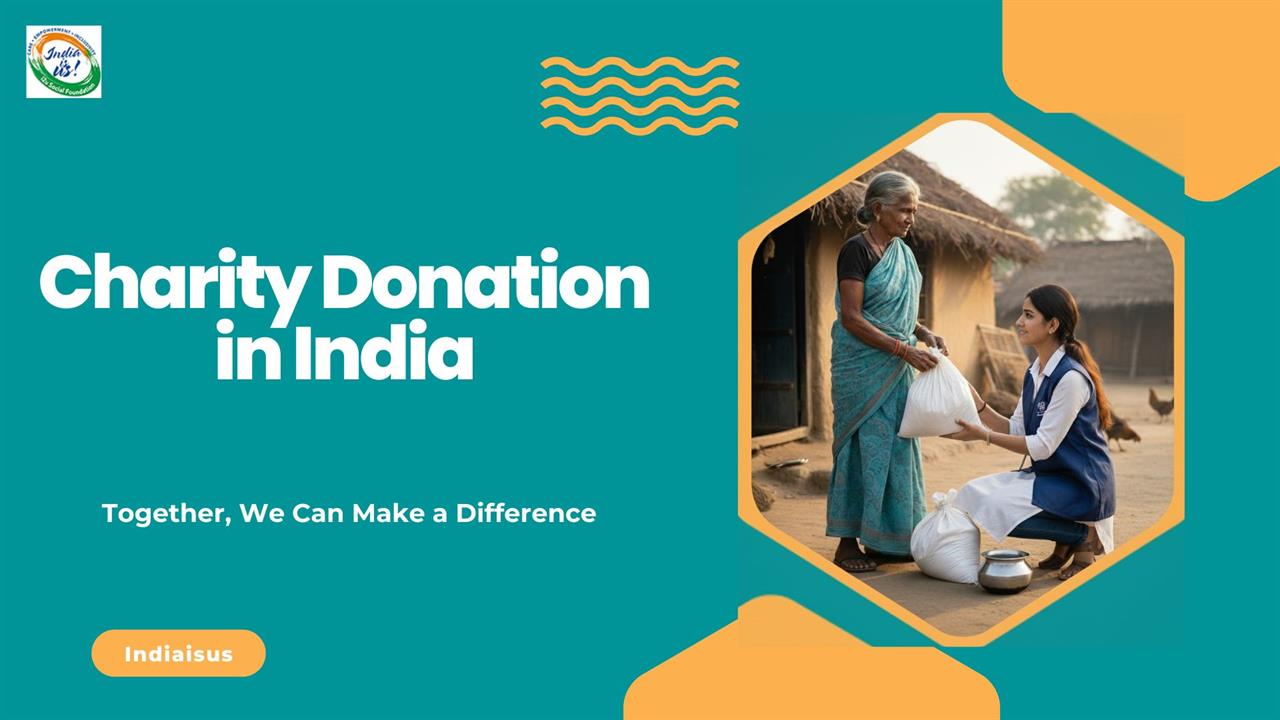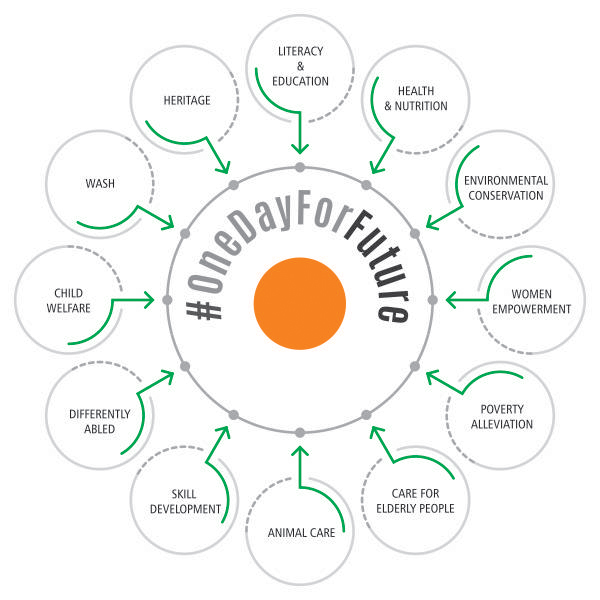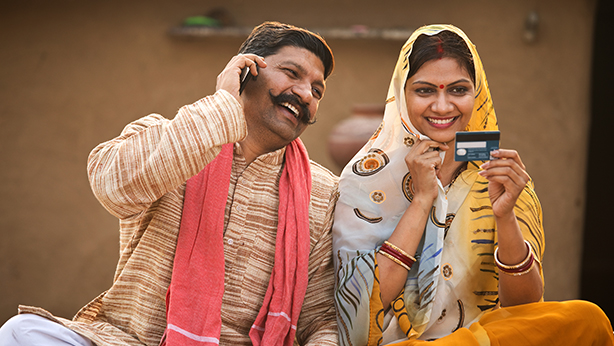Use your power to make a difference by joining our Let's Do Good initiative.
Step-by-Step Process: How to Register an NGO
Thursday , 24 April 2025- 5 min. read
Creating a non governmental organization (NGO) in India is a great way to contribute positively to the society you belong to. Through an NGO, you can focus on education, poverty alleviation, women's empowerment, environmental preservation, or any number of other activities, there are no limits to the possibilities. Once registered as an NGO, you will be able to function more legitimately, transparently and take donations and grants legally.
What is the first step to achieve this? Creating your NGO may seem daunting at first glance, but don’t worry. We have structured the process for you into six steps so that you will be able to register your NGO in India!
Step 1: Identify the Appropriate Legal Structure for Your NGO.
Before you can register as an NGO, the first thing you have to do is decide what type of legal form you want your NGO to take. In India, you can register an NGO as either:
- Trust - Governed by the Indian Trusts Act, 1882. Trust is used for charitable work.
- Society - Registered Society under Societies Registration Act, 1860. Society is a good structure for organizations that have lots of creators, members and hold regular meetings.
- Section 8 Company - Registered under the Companies Act, 2013. A Section 8 company is a good option for individuals who want a structured and more formal system of governance.
Each type has its own advantages and compliance requirements, so your choice depends on the nature of your work, the area of geographic boundaries, and how formal you like your structure to be.
Step 2: Finalize Your Name
This may sound like the easiest part, but it is an important step. Your NGO's name must be distinctive and not resemble that of any other registered entity or break provisions of the Emblems and Names (Prevention of Improper Use) Act, 1950. Here's how to decide:
- Make it reflect your mission.
- If incorporating under Section 8, check the link to the Ministry of Corporate Affairs (MCA) to check if the name is available.
- Don't include any religious or political connotations unless directly linked to your work.
- Once you have your name, it will appear on all official documents and be your cause's face.
Step 3: Compile the Required Documents
Whatever structure you choose, a collection of documents is required in all instances. The documents required for registration are usually:
- Identity proof (Aadhaar, PAN, passport) and address proof for all founders/trustees/directors.
- Passport-size pictures.
- Address proof of registered office (rental agreement/NOC from owner/property tax receipt).
- You will need a Memorandum of Association (MOA) and Articles of Association (AOA) or Trust Deed (depending on the structure).
- You require a declaration/affidavit from the board declaring that they would like to be part of the NGO's decision making body.
- For a Section 8 company, Digital Signature Certificates (DSCs) and Director Identification Numbers (DINs) for the directors are also requirements.
Step 4: Draft Your Governing Documents
Your governing documents describe your NGO's purpose, objectives, operational rules, and internal governance. This will have minor variations depending on your chosen structure:
- Trust:
Write a Trust deed that clearly outlines objectives, roles, and operational framework.
- Society:
Write your Memorandum of Association (MOA) and Rules & Regulations.
- Section 8 Company:
Write your MOA and Articles of Association (AOA) just like a private limited company.
These documents are important for registration and statutory reporting, so you want to be as precise and transparent as possible.
Step 5: Apply for Registration
The application process will also vary depending on the structure you have chosen:
- Trust:
Provide the trust deed and any other requirements to the local registrar of trusts.
- Society:
Provide the MOA and Rules & Regulations and any other requirements to your state Registrar of Societies.
- Section 8 Company:
You can apply for a Section 8 Company through the abbreviated online applications with the MCA portal in Form INC-12, approval of name reservation through RUN service, and license through Form INC-29 or INC-32.
After you submit your application, the Central Government's department will call you for clarification and finally provide you Certificate of Registration for a Section 8 Company if all is in order.
Step 6: Obtain PAN, TAN, and Open Bank Account
- After registration, you need to make your NGO fully functional by obtaining your PAN (Permanent Account Number) and TAN (Tax Deduction And Collection Account Number). You can do this by applying with National Securities Depository Limited (NSDL) or UTIITSL.
- Next, you also need to open a bank account in the name of your NGO.
- If you are going for more certifications like 12A and 80G with the Income Tax Department, this application step is also needed for your NGO and your donors to obtain tax exemptions.
The steps mentioned above are imperative for financial transparency, which allows your organization to receive funds, donations, and grants both nationally and internationally (if you obtain an FCRA license for foreign funding).
Bonus Tip - Compliance and Good Practices
You will have to comply with record keeping and annual returns, where mandated, after your registration. Also, ensure the following:
- Compliance with the legislation of the state and central government.
- Keep financial records audited.
- Transparency with your donors.
- Create an internal board or committee.
Good governance can go a long way toward credibility, which is important to develop support (grants and partnerships) in the long term.
Final Thoughts
While registering an NGO in India may look complicated at first, if you have an idea and follow a clear plan along with some direction, it can be a very simple and fulfilling experience.
If you are serious about making social change, then we encourage you to take action. By registering as an NGO, you will have a legal entity while also expanding your ability to increase your social impact.
If you require support in registering your NGO or need to build more visibility for your cause, reach out to i2u Social Foundation. We work with NGOs to help with set-up, branding, partnerships, and more. Let's get started and create change together.




.jpeg)













